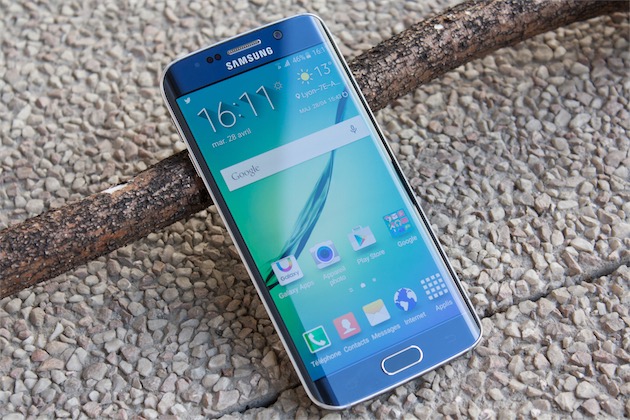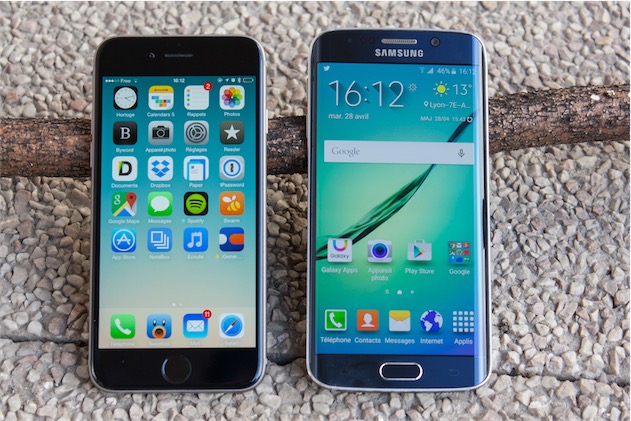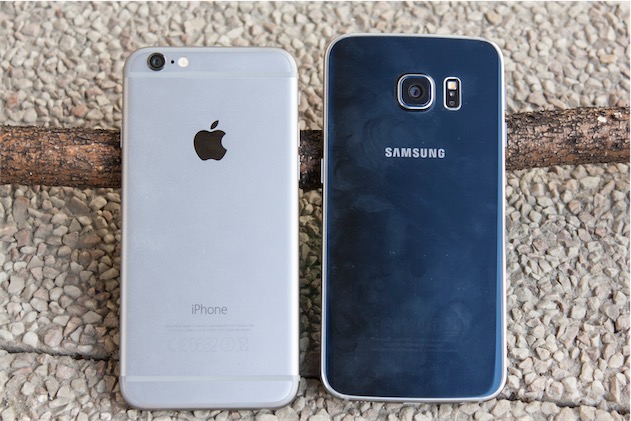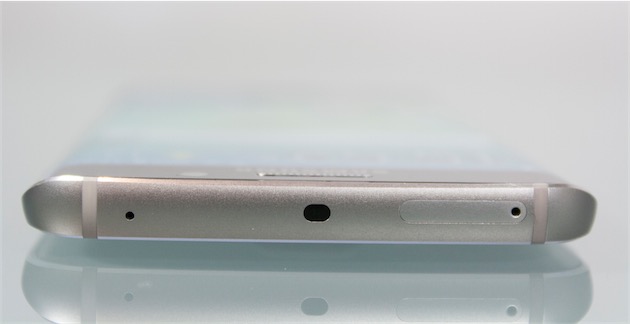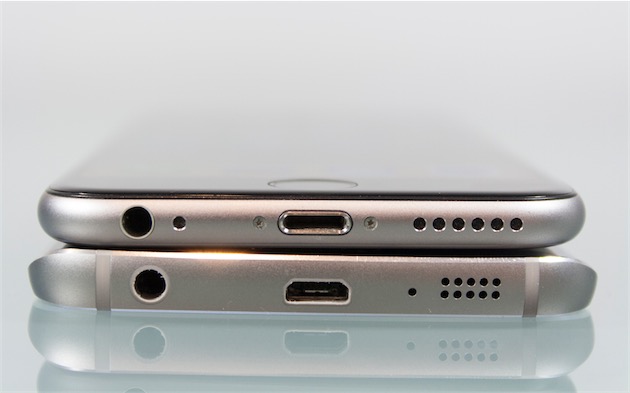It was yesterday that LG officially introduced its LG G4, a 2015 flagship that comes directly be placed alongside the Galaxy S6 and S6 Edge, HTC One and Sony Xperia M9 Z4, though for now it n ‘was made official in Japan. The opportunity to establish a comparison of the technical characteristics of the latest high-end Korean compete.
Specifications
Processor and Performance
Unlike the HTC One Sony Xperia M9 or Z4, the LG G4 is a team of 808 Snapdragon processor, a chip based on a 64-bit instruction set and composed of four hearts and two A53 A57 cores, the all accompanied by a GPU Adreno 418. It is therefore theoretically less powerful than the Snapdragon 810 , its eight cores and GPU Adreno 430, however the benchmarks, the difference is not too pronounced.
Meanwhile, the Galaxy S6 and S6 Edge are accompanied by an Exynos 7420 processor engraved in 14 nanometers and backed by 3GB of Ram LPDDR4, the best the market while the Snapdragon 810 is etched 20 nanometers. So there is no mystery, the Samsung chip is not only more efficient but also more energy efficient and both S6 are the big winners here.
Screen
As usual, LG and Samsung have improved their display technologies to offer an even better display panel than last year. The screen qHD Super AMOLED Galaxy S6 and S6 Edge is colorful and contrasting and could be placed above the rest if LG had not offered many improvements on the embedded slab by LG G4.
Yet this is the case, and the last screen of the flagship firm benefits from Quantum technology borrowed from its televisions and offers a picture 25% brighter, more colorful 20% and 50% more contrast as the G3. The panel is capable of displaying deep blacks and has very little to envy the AMOLED screens. For their part, HTC and Sony retain the same technologies, Super LCD 3 for the first IPS Triluminos for the second and a Full HD 1080p. Each of the two offers excellent display quality but the two Korean remain above the rest.
Camera
With a photo sensor of 20.7 Megapixels Opening f / 2.2, the HTC One M9 offers a satisfactory quality without being excellent, however the sensor is not yet perfectly mastered and rendering will soon improved by a software update. For its part, the Sony Xperia Z4 uses the same 20.7 megapixel sensor with f / 2.0 the Xperia Z3 which had already proven on it.
The Galaxy S6 and S6 Edge stand out by offering a photo sensor 16 megapixels opening f / 1.9 that allows them to reach heights in low light and generally offer excellent quality. They also elected the first DxOMark latest ranking.
Meanwhile, the LG G4 goes even further, on paper, with an opening of 16 megapixel camera sensor f / 1.8 able to capture 80% more light than the G3 with its six lens elements. Everything has improved, starting with optical stabilization which passes OIS OIS + to 2.0 and now focuses on three axes. Always present, laser autofocus displays a time development record of 0.276 seconds. Finally, a sensor spectrum color s’invite first smartphone to offer the most natural colors and more accurate white balance.
Autonomy
In terms of battery life, you can not compare that smartphones have already been tested. Thus, as we have already seen, the Galaxy S6 and S6 Edge and HTC One M9 offer a very good endurance and no less good or worse than their predecessors, however, it would probably still room for improvement.
Meanwhile, the Xperia Z4 and the LG embark G4 battery 2930 mAh and 3000. A flashback to Sony who wanted further refine his phone, while LG stays on the same capacity with the G2 and G3. Nevertheless, it is not yet known what optimizations offers Snapdragon 808, in terms of autonomy. In addition, the LG G4 is the only five to propose a removable battery and it’s so valuable that it deserves to be emphasized.
Design
In terms of design, Sony and HTC remained on their acquired only proposing some adjustments compared to previous generations. For its part, Samsung has made considerable efforts by offering not one but two smartphones, one curved screen, sporting a premium design combines an ultra solid aluminum glass protective Gorilla Glass 4, the most resistant of the market.
At this level, the LG G4 also stands out in particular by offering a slightly curved screen that will strengthen the ergonomics of the device while limiting the risk of breakage if dropped since the curvature which, although almost imperceptible to the eye, to prevent the screen from ending up in contact with the ground. Moreover, the device also comes in a particularly elegant leather version of



